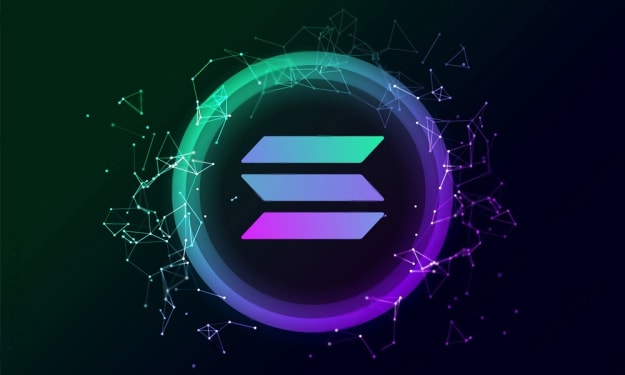NFT Marketplace on Polygon: A Comprehensive Blockchain for Futuristic Marketplaces
NFT Marketplace on Polygon

Creators and collectors are experiencing a revolutionary change that is transforming how we buy and sell digital assets. NFTs have taken the web3 world by storm with their unique features that enable digital ownership of art, music, videos, sports, photos, and much more. These unique tokens are shaking up the world with the rise of NFT adoptions. The emergence of NFTs has created a positive storm, with a surge in interest and demand for these digital tokens. They offer a secure, transparent, decentralized way to buy, sell, and trade digital assets.
NFTs have been making headlines for their record-breaking sales, with artworks selling for millions of dollars. The buzz around NFTs has caught the attention of celebrities, athletes, and musicians, who are jumping to create and sell their own NFTs. Leading to an increase in the demand for the marketplace. Polygon blockchain-based NFT marketplaces are promising marketplace on the market today is Polygon. This platform has been designed to offer users a fast, secure, and cost-effective way to trade NFTs on the blockchain network. Let's discuss the NFT Marketplace on Polygon in this blog.
Overview of Polygon Blockchain
Polygon is a Layer 2 scaling solution for Ethereum, which aims to provide a faster and low transaction fee network. It was formerly known as Matic Network before rebranding in February 2021. Polygon is a multi-chain system that enables interoperability between different EVM-compatible blockchain networks. The platform has gained significant traction due to its speed, scalability, and low transaction fees.
Polygon achieves high scalability by utilizing a Proof-of-Stake (PoS) consensus mechanism, where validators stake the platform's native token, MATIC, to validate transactions and create new blocks.
Polygon is an ideal platform for creating decentralized applications (dApps). The platform's features include low transaction fees, fast confirmation times, and interoperability with other blockchain networks. Its rapid growth and adoption by many projects make it an exciting platform to watch in the blockchain.
Why is Polygon a perfect Network for the NFT marketplace?
The rise of Non-Fungible Tokens (NFTs) has been a significant trend in digital art and collectibles. NFT marketplaces are platforms where creators can mint and sell their NFTs while collectors can buy, trade, and store them. As more and more creators and collectors enter the NFT market, the need for reliable and efficient NFT marketplaces has grown exponentially.
In this context, Polygon is emerging as a popular choice for NFT marketplace development. Moreover, Polygon’s validating mechanism enables faster and cheaper transactions than the other blockchains. Polygon offers unique features and advantages that make it attractive to NFT creators, collectors, and investors.
Advantages of Developing an NFT Marketplace on Polygon
Here are the important advantages for choosing Polygon and why it is an ideal network for NFT marketplace development.
Lower Gas Fees
One of the critical issues with NFT trading is the high gas fees. These fees can be prohibitively expensive for smaller transactions, which makes it difficult for artists and creators to sell their work. Polygon Network offers much lower transaction fees, making it more accessible for creators and buyers alike. The low fees make NFT transactions more affordable and accessible to a wider range of users.
High-Speed Transactions
Polygon Network enables faster transaction speeds, which is especially important for NFT trading. NFTs are unique digital assets that require fast and secure transactions. The protocol allows for faster transactions, up to 65000 confirmation times, which could make it more attractive for buyers and sellers who want to complete transactions quickly without many mempool issues.
Secured and Decentralized
A secure network is one of the crucial roles of every blockchain. Polygon network is a decentralized blockchain that works with a proof of stake consensus mechanism. It offers a high level of security to the NFT marketplaces, transactions, and Dapps.
Developing an NFT marketplace on Polygon
Developing an NFT marketplace on Polygon can be a complex task that requires technical expertise in smart contract development, user interface design, and wallet integration. This article will guide you with the technical requirements for developing an NFT marketplace on Polygon.
Developing and deploying smart contracts
Smart contracts are self-executing programs with the pre-determined terms of the agreement between buyer and seller being directly written into lines of code. Developing smart contracts is a crucial part of an NFT marketplace as it facilitates the creation and management of NFTs. Smart contracts are deployed on the blockchain and are immutable, meaning that once deployed, they cannot be modified.
To develop smart contracts for an NFT marketplace on Polygon, developers can use Solidity, a programming language used to write smart contracts on Ethereum and other Ethereum Virtual Machine (EVM) compatible blockchains. Polygon is EVM compatible, which means that Solidity can be used to develop smart contracts for an NFT marketplace on Polygon.
Once the smart contracts are developed, they need to be deployed on the Polygon network.
Designing and implementing user interfaces
User interfaces are a critical component of any NFT marketplace as they enable users to interact with the marketplace to create, buy, and sell NFTs. The user interface should be intuitive, easy to use, and visually appealing.
Developers can use popular front-end frameworks such as Javascript to build the user interface. Solidity can be used to interact with the Polygon blockchain and smart contracts from the front end.
The user interface should include features such as creating, listing, and purchasing NFTs, viewing transaction history, and connecting to a wallet. The user interface should also display information about each NFT, including its name, description, image, and metadata.
Wallet integration
It is an essential step for an NFT marketplace as it enables users to store their NFTs and interact with the marketplace securely. Wallets such as MetaMask and WalletConnect can be integrated into the marketplace to enable users to connect their wallets and interact with the marketplace.
The user's wallet enables them to sign transactions, view balances, and interact with their NFTs. The user's wallet address should be displayed on the user interface, and users should be able to view their NFTs in their wallet.
Technical requirements
To develop an NFT marketplace on Polygon, developers need to have the following technical expertise.
Developers should be familiar with Solidity, the programming language used to write smart contracts on the network.
Developers should be proficient in integrating wallets such as MetaMask and WalletConnect into their applications. In addition, they should also be proficient in building an internal wallet.
Developers should be knowledgeable in react or javascript to create an attractive front end of the marketplace.
Is it Important to Hire a Polygon NFT Marketplace Development Company?
Developing an NFT marketplace on Polygon is a complex process that requires specialized skills and expertise in Ethereum and Polygon blockchain technology. As such, it is essential to hire a reputable and experienced Polygon NFT marketplace development company to ensure the success of your project.
With the proper knowledge and expertise, attempting to develop an NFT marketplace on Polygon can be effortless. The process involves creating smart contracts, integrating blockchain technology, and designing a user-friendly platform that can handle high volumes of transactions. A professional development company can help you navigate these complexities smoothly and ensure your NFT marketplace is secure, reliable, and user-friendly.
A Polygon NFT marketplace development company can provide the necessary support and guidance throughout the development process. They can help you define your requirements, provide technical expertise, and offer ongoing maintenance and support after completing the project.
Bottom Line
The use of Polygon for NFT marketplaces offers a compelling solution to the high transaction fees and slow transaction speeds associated with other prominent blockchain networks. Its lower transaction fees, faster transaction speeds, interoperability with Ethereum, growing community support, and ecosystem development make it an attractive option for building your NFT marketplace
Outsource, a reputable Polygon NFT Marketplace Development Company is essential if you want to ensure the success of your project. They can provide you with the expertise, support, and guidance you need to create a secure, reliable, and user-friendly NFT marketplace on Polygon.





Comments
There are no comments for this story
Be the first to respond and start the conversation.